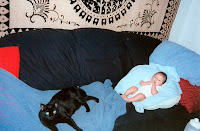In August 2004, Duke University distributed 1600 ipods to first year students to encourage creative ways of technology education and campus life. The evaluation focused on benefits and effectiveness of the ipod as an academic tool for students and faculty.
There were five major categories of academic use by the faculty at Duke;
1) Circulation of course content
2)As a classroom recording tool
3) As a field recording tool
4) As a study support tool
5) As file storage and file transfer tool
The benefits of the $500, ooo project were one of many, for both faculty and students the convenience perspective, lack of reliance on books and other physical tools. Flexibility on logistics and location which reduced time spent at labs and libraries. The recording feature was an effective tool regarding oral assignments, interviews, etc. Student engagement and interest increased. And lastly, it enhanced learning support for individuals.
As a kindergarten teacher, when the time comes it may be a near future aspect of the classroom. As in Carrolton District, they are using with students with English as a second language. It is suggested for mastering vocabulary, phonemic awareness and uses in mathematics. I think it is a great idea to because it helps connect the home with the classroom. Parents will become more involved and interested to know if their children are playing or working on homework, etc. It encourages interaction of both parent and child which is essential to children's success in reading skills. I find most interesting that it may inspire more enthusiasm with math which is a subject that I was not encouraged in as a child. I realized it was taught as a hated thing because my teacher hated it. So if I embrace a way to increased my ability with math and peek my interest I will pass that on to my students that math is not to be feared or hated.
Monday, October 22, 2007
Wednesday, October 17, 2007
Response to Cultural Revolution
In regards to my previous post on the disappearance of print. My position has not changed as much has been a bit broadened and enlightened by the publication "Cultural Revolution". I never realized just how prevalent and how intense the "revolution" of the silver disc and how print is really in danger. Creating and authoring media is a powerful tool with children. It motivates them to be more creative and excites them to learn more about what they are studying and the media involved in the lesson. However, I don't believe that it will ever disappear altogether because of old folks like me that enjoy the smell of old leather binders and dusty book halls. Also, in my classroom, now and in the time I will teach, in early elementary classes it will not be able to disappear altogether because of the learning process for children of writing, phonics, and spelling lessons but it will come to pass slowly as the use of computers already exists. In the class room integrating media with the use of books is additonal benefits for students in that they can look, touch, feel, create and author media of there own.
Saturday, October 13, 2007
Seymour Papert
Seymour Papert is the world's foremost expert on how technology can provide new ways to learn. His current educational project is as an advisor to Nicolas Negroponte's One Lap Top Per Child. The mission of the foundation is to provide children around the world with new opportunities to explore, experiment, and express themselves thru educational software. The children at main focus are children outside of the first world that otherwise do not have access to technological learning opportunities. To give the OLPC a jump start it is starting a "give one, get one free" campaign. It is like our buy one get one free, which means one for OLPC, and one for yourself. Not a bad deal to help less fortunate children.
Mr. Papert is also on among many advisory boards, MaMaMedia which specializes in a structionalist learning theory inspired applications to help develop digital literacy skills for children around the world. His advice regarding technology based educational methods is sought internationally by governments agencies in Africa, Latin America, Europe, and Asia. Mr. Papert's work continues to be recognized with many awards.
Mr. Papert is also on among many advisory boards, MaMaMedia which specializes in a structionalist learning theory inspired applications to help develop digital literacy skills for children around the world. His advice regarding technology based educational methods is sought internationally by governments agencies in Africa, Latin America, Europe, and Asia. Mr. Papert's work continues to be recognized with many awards.
Wednesday, October 10, 2007
Subscribe to:
Comments (Atom)










